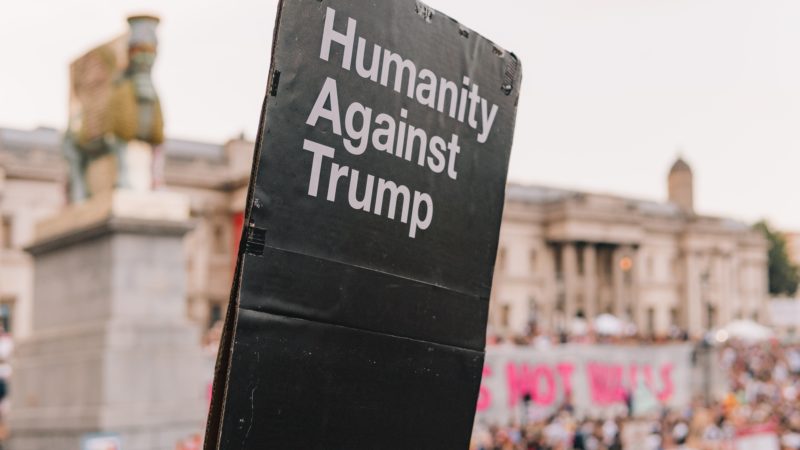
Jim Ratcliffe, whose £21bn fortune makes him the richest person in the country, is a supporter of right-wing Brexiteers in parliament. The boss of Ineos in Grangemouth, he is also a strike breaker who used financial power to lock out, humiliate and defeat a powerful trade union. Ratcliffe belongs to a group of rich people running away from the consequences of the very thing they have bankrolled and promoted: Brexit. Ratcliffe announced last year that he is quitting the UK for tax-free Monaco. He is now joined by another powerful employer, Jim Rowan, the CEO of Dyson.
I want to make two points about these scarperers – one political, the other economic. First, it is odd to find both Labour members and unions backing the very thing these powerful men are trying to escape: Theresa May’s ’global’ Britain. A Britain broken and dislocated from EU regulation and EU negotiating power by Brexit.
Second, it is important to understand why these rich powerful employers have chosen to escape both Britain and the EU by fleeing to Monaco and Singapore. The clue is in a statement made by Jim Rowan about his company Dyson: from now on, he has asked, it should be referred to as a “global technology company”.
These companies are demanding something already achieved by the City of London: they want to be allowed to operate beyond the reach of regulatory democracy. They do not want their companies, their employees and their financial activities rooted in a democratic state, such as Britain, or in a union of states, such as the EU, that can oversee and regulate their activities.
This determination to become detached from the state, and in particular democracy, and to roam freely through the global financial ‘stratosphere’ is the ideology of the ‘globalists’. It is known as neoliberalism. It is an ideology shared by the extreme right of the US Republican party, the Conservatives and by billionaires in both Silicon Valley and Grangemouth.
It is the ideology that has cheered on globalisation, weakened the state and hollowed out parliamentary democracy. And it is globalisation, in my view, that has led to the rise of populism. Footloose, self-regulating global investors have used their power to pick and choose where to invest. By doing so they have forced governments and companies (like Dyson and INEOS) to compete to lower wages, dismantle welfare, privatise public assets and raise the prices of property across the globe. They achieved their mighty status thanks to financial deregulation – delivered by political parties on both the left and the right. Deregulation enabled corporations and investors to move money effortlessly across borders, and to use that power to cherry-pick countries in which to invest and build new plants.
The ideology of globalisation (“global private providers can deliver services more cheaply and efficiently than governments”) has pressured governments into the privatisation of publicly-funded assets – in healthcare, education, mail, energy and transport. Many of these taxpayer-funded assets are now owned by private corporations that, like, Jim Rowan’s Dyson, define themselves as “global” – few of whom are based or taxed in the countries whose assets have been appropriated.
Once they acquire public assets (often at knock-down prices), global corporations use their growing oligopolistic power to eliminate competitors and raise prices and costs. (These are the people that hide behind the ideology of “free markets” – but who regard such implausible economic theory as a joke.) The burden of these costs fall on the people. Above all, they use their oligopolistic power to threaten governments, lay off workers (especially those with strong unions that demand reasonable pay and conditions) and replace them with technology.
Workers and people across the world are today rising up against globalisation. Their insurgencies – like that which led to the election of Donald Trump – are not necessarily rationally in their own interests. But they are a form of resistance, a way of damaging the globalisation project, and of hurting the billionaires that today sit so uncomfortably on the side of a mountain in Davos.
One of the reasons these insurgencies are led by the right and the far-right, and not by the left, is because so many left politicians – including Labour politicians – fell for the ‘light touch regulation’ that benefitted global elites. Thanks to this collusion between the so-called left and ‘globalists’, social democracy across the world has been severely weakened. It has been eclipsed by authoritarian and sometimes murderous right-wing parties (think of Presidents Jair Bolsanaro in Brazil and Rodrigo Duterte in the Phillipines).
Thankfully, that has not happened in Britain. Social democracy in the form of a Corbyn-led Labour party is the only thriving and popular social democratic party in the world. That popularity is at risk if Labour and its powerful unions are seen to back the scheme that is a ‘global Britain’ after Brexit – laid by the likes of Jim Ratcliffe, Jim Rowan and Nigel Farage in collusion with the far-right of the Tory party.
This piece was commissioned by Labour Together, which is guest editing LabourList this week.




More from LabourList
‘Labour is being badly misled on housing’
Reeves bets on patience over populism
‘Energy efficiency changes must work for older private renters’